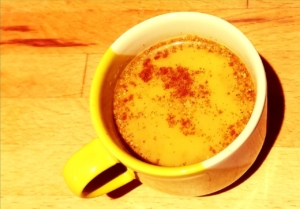If you are multitasking with children schooling from home, I hear you.
Nutrition plays a huge part in overall health and also in how we respond to additional pressures in our lives.
In this article I will share very easy to implement suggestions to support your and your children’s health.
Eat Magnesium-rich foods – for a calmer response to stress and to optimise your mood. Magnesium also supports brain health and learning, energy production and for those prone to constipation it can bring on a much needed daily relief. Magnesium-rich foods include spinach, pak choi, dark chocolate, sunflower seeds, flaxseeds, pumpkin seeds, avocados and mackerel. You can also supplement with Magnesium and add a couple of big handfuls of Epsom Salts to your baths to allow for Magnesium to move into the body through skin.
Include healthy fat in main meals. This will help balance your blood sugar which will result in better mood, hormone balance, healthy weight and, chances are, if you are having sugar cravings – these will be greatly diminished. Our bodies need fat and our brains are made mainly from fat and need fat to function optimally. Healthy fats are in avocados, butter and ghee, olive and coconut oils, nuts and seeds, fatty fish such as salmon and sardines. You may also like to supplement and I recommend that all children, especially those with any mood issues, supplement with good quality fish oil to optimise their cognitive health. Remove vegetable oils and all trans-fats which are usually found in crackers and pastries, even in many of the “healthy”varieties.
Ideas for meals packed with healthy fats include:
Coconut baked salmon with parsnip chips, chia pudding with berries, berry and broccoli smoothie with a tbsp. of coconut oil topped with chia seeds, shakshuka with eggs, guacamole with egg and salad.
If you experience any nausea from eating fat this could indicate gallbladder issues and you will need a more individualised approach.
Avoid sugar. Sugar contributes to many serious conditions. It also creates a massive imbalance in blood sugar levels resulting in anxiety, depression, behavioural issues and exhaustion. This becomes an actual addiction locking people in a difficult to break cycle – feeling exhausted and stressed leads to more comfort eating and reaching for more sugar. Remember that alcohol is a liquid sugar, and if you would like easy tips on drinking less with a recipe for a delicious non-alcoholic cocktail, please see my article here.
I know quitting sugar can be challenging as we humans are biologically wired to seek out sugary foods. However, this wiring comes from the time when our ancestors relied on an occasional handful of berries or apples. We no longer need it as we surrounded by a wide selection of foods.
It really helps to remove all sugary foods from the kitchen cupboards to avoid any temptation. This includes raisins as these are very high on Glycemic Load and are probably one of the most blood sugar dysregulating snacks to have. Adding more fat to your main meals will help minimise any sugar cravings. I don’t recommend using natural sweeteners particularly if you suffer from any dysglycemia as even thinking about sugar has an effect on insulin. For extra support with sugar craving, I recommend adding cinnamon to your teas or taking an adaptogen called Gymnema Sylvestre to help stabilise blood sugar. Sometimes cravings for sugar come from our emotions which, if we consider the current situation, is not that surprising. Why not create a plan B – what could you do instead of eating a sweet? Could you cook something with your child, could you go out on a walk?
Good ideas for healthy treats include: nut protein balls, cacao banana avocado mousse, paleo muffins with grated apple and cinnamon, banana and oat flapjacks with added flaxseed. All of these take minutes to make and can be a fun activity to do with your children when they are on their breaks from school.
Consume lots of anti-oxidants to help your body detoxify and function better. These include berries, cinnamon, turmeric, coriander and broccoli and kale. They can be frozen and then added to smoothies.
Childr
RECIPE
- 1 small cup milk
- 1 tsp ground or freshly grated turmeric
- ½ – 1 tsp freshly grated ginger
- ½ tsp cinnamon
- A drop of vanilla essence
- 1 tsp coconut oil
- A pinch of black pepper
- A drop of honey
- For busy mothers, I recommend adding a little Ashwagandha powder to the mixture – to support adrenals and sleep.
Method: Heat all ingredients apart from honey until well combined – this should take appx. 2-3 mins. Add honey and stir, sprinkle with more cinnamon.
If you would like further advice on naturally supporting your mood and health with Nutritional Therapy, do contact me. My consultations are online so it doesn’t matter where in the world you are.
Wishing you all health and harmony,
Magda

